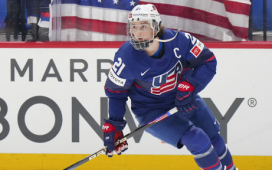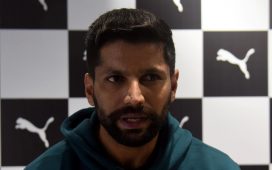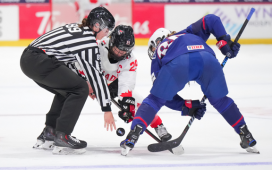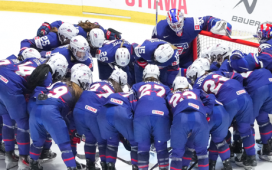Instead of trading talent away for players that would help next season, three separate clubs simply moved players for picks and dumped salary. That’s the reality that cap-strapped teams have to face, especially when the cap came in lower than most expected.

VANCOUVER – Nashville Predators GM David Poile came right out and said he and his team, “had to make a business decision,” when it came to trading P.K. Subban for four assets that may or may not ever contribute to his roster. Undoubtedly Poile would have preferred to keep Subban, but in the end when you’re in that kind of spot, sometimes you have to trade the contracts you can trade and move on.
That’s what Tampa Bay Lightning GM Julien BriseBois did as well. When he acquired Ryan McDonagh and J.T. Miller from the New York Rangers at the trade deadline in 2018, he certainly didn’t do so with the intention of moving Miller for a minor league journeyman and draft picks, but that darn business of hockey got in the way. As it did for Toronto Maple Leafs GM Kyle Dubas, who gave away a first-round pick in order to get a $6.25 million salary off his books.
All three of those deals occurred on Day 2 of the draft and the theme of all of them was clear. These were salary dumps, plain and simple. Not long after those deals were announced, the NHL and NHL Players’ Association settled on an upper limit of $81.5 million for the salary cap, which was lower than everyone expected it to be. That didn’t trigger the fire sales, but it undoubtedly had something to do with them. In all three cases, teams that had plenty of dry powder in the form of cap space were able to gain valuable assets by taking on unwanted contracts. “You’re stuck,” said Dallas Stars GM Jim Nill. “That’s part of our business. If you don’t (make those deals), you might lose the player and that’s the dilemma.”
When the Hurricanes made the deal to acquire Marleau, it was believed they were intent on simply buying him out, which would leave Marleau free to re-sign with the San Jose Sharks. But Hurricanes GM Don Waddell maintained after the draft that he wants Marleau, who waived his no-move clause to facilitate the deal, to be part of the Storm Surge in 2019-20. “Absolutely we want him,” Waddell said. But because Marleau accommodated the Leafs when he could very well have dug in his heels, the Hurricanes agreed to take him in an attempt to get him to play there next season. If they are unsuccessful, they will buy him out.
For BriseBois, moving Miller and being able to put Ryan Callahan on the long-term injured reserve takes his team from salary cap hell to a place where he should be able to come to terms with restricted free agent Brayden Point and still be able to keep Tyler Johnson. The possibilities of doing both of those things looked slim until recently, but like any good GM, Brisebois has found a way of extricating himself from a fairly tenuous situation. “It gives us a position where we have a little bit of breathing room,” BriseBois said. “I was never concerned (about Point). I said from the get-go I expect Brayden to sign with us and I still think that’s the case.”
And BriseBois is not finished in trying to find a fit to move the Callahan deal. By putting Callahan on LTIR, the Lightning are in a position to replace the cap space he would have taken up with other players, but it doesn’t mean their headaches are over yet. With so many good young players on entry-level deals that carry performance bonuses, if the players achieve those targets it may put the Lightning over the cap, an amount they would have to carry over to next season. So you can definitely look forward to the Lightning to try to find a team to take on Callahan’s dead money. And of course, the Arizona Coyotes are a prime candidate because that’s where all once-good players end up when they can no longer physically play the game. In fact, BriseBois said placing Callahan on LTIR remains the worst-case scenario. “If something comes up, we would be amenable to that,” BriseBois said. “It’s not so much about this year’s situation. If we don’t move Callahan’s contract, then the bonuses that are going to be earned this year are going to be carried over into next year and I’m going to be in a pickle again next year. I might be in a pickle again next year anyway. That’s par for the course at this point.”
Want more in-depth features, analysis and an All-Access pass to the latest content? Subscribe to The Hockey News magazine.








